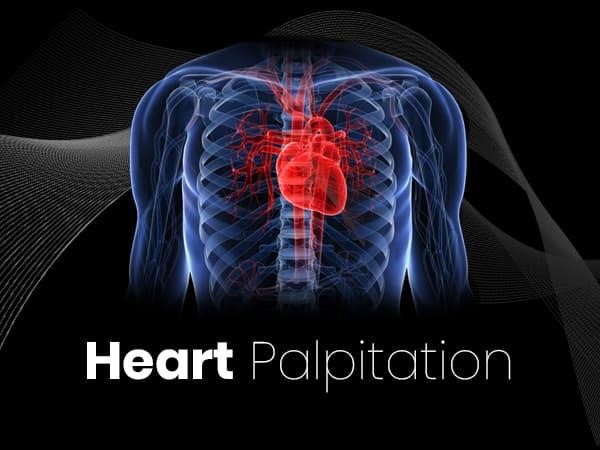
If your heart feels like it’s racing, fluttering or skipping beats, you may feel dizzy, lightheaded or short of breath. Heart palpitations can also be painful, especially if they are frequent or occur when you are exercising. These are signs that you need to see a doctor.
The first thing your doctor will do is ask questions about your symptoms and medical history. He or she will also check your blood pressure and listen to your heart. You will need to provide information about any medications, vitamins and herbs you take, as well as any stress or other factors that might trigger the palpitations. It is important to describe the timing of the palpitations, how long they last and what causes them (for example, exercise or anxiety). Your doctor will then do a physical exam and examine your lungs and heart.
Heart palpitations are usually caused by changes in your heart’s electrical system. These can be brought on by medications, stress or illness, or by hormone changes during pregnancy or menopause. The good news is that these kinds of heart rhythm problems are very common and rarely cause any serious health problems.
In most cases, your doctor will recommend only that you make a few basic lifestyle changes to prevent the palpitations. These include stopping or reducing the amount of caffeine you drink, and increasing your routine hydration. Your doctor may also suggest that you try yoga, tai chi or other relaxation techniques to ease your stress and anxiety.
Your doctor will also want to know if you have any other health conditions or have had any heart surgery or serious illnesses in the past. He or she may also order blood tests to see if your thyroid is working properly, as well as a chest x-ray to look for fluid in the lungs, which could indicate a problem with your heart’s pumping function.
For more serious cases, your doctor might prescribe medication to control the errant electrical signals that cause the heartbeat to speed up or skip beats. These medicines, called beta blockers, slow the heart rate and help control the flow of “beat now” signals that regulate the heart rhythm. In some cases, a surgical procedure to control the erratic electrical signals might be needed.
If the heart palpitations are accompanied by shortness of breath, lightheadedness or fainting, have someone drive you to the emergency department or call 000 right away. These symptoms are signs of a more serious problem with the heart or lungs that needs to be treated immediately.
Depending on the results of your tests and the severity of your symptoms, your doctor might refer you to a cardiologist for more extensive testing. This could include a cardiac catheterization, a treadmill test or an electrocardiogram at the hospital, and portable monitors that record your heart’s rhythm outside the hospital (ambulatory EKG or Holter monitor). These tests can give valuable information about what is causing your palpitations.





Phenix Health delivers online health services 24/7 provided by Australian doctors and healthcare professionals.